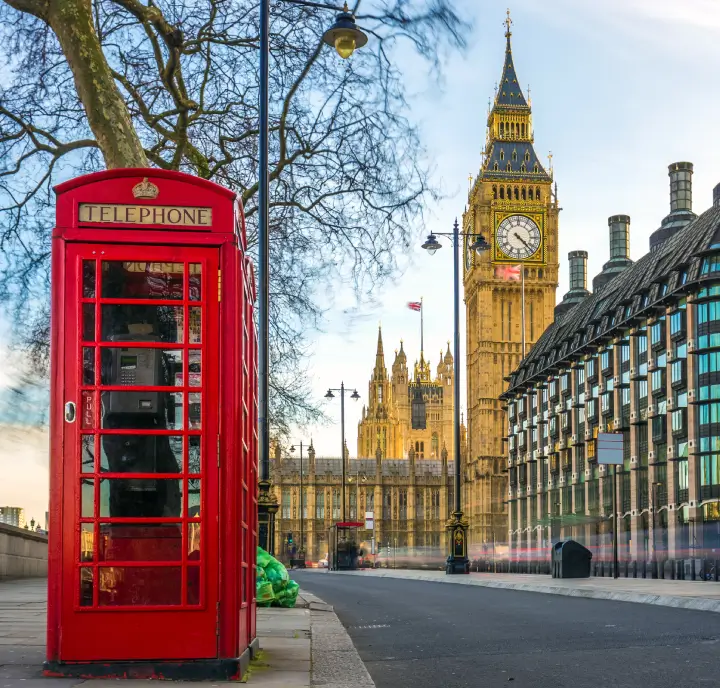Monday - Friday: 9:30am - 5:30pm
Child Custody Solicitors
Our child law solicitors at Josiah-Lake Gardiner have considerable experience in helping our clients protect the welfare and interests of their children.
Monday - Friday: 9:30am - 5:30pm
Our child law solicitors at Josiah-Lake Gardiner have considerable experience in helping our clients protect the welfare and interests of their children.
Few negotiations are more sensitive than those involving child disputes. At Josiah-Lake Gardiner, our team of child law solicitors are experts in guiding our clients through legal issues surrounding their children. Our child law solicitors will work with you to get a legally binding child arrangement order, whilst minimising any distress for your children.
To book an initial consultation with our expert child custody solicitors in London, simply call 020 3709 8975 or complete our online enquiry form.
When a relationship breaks down, the children of the relationship frequently become a focus for the dispute between their parents, whether the parents are married, civil partners or living together. In this situation, it’s common for both parties to seek legal advice from child custody solicitors to understand their respective position over their children.
It is generally accepted, barring child safety concerns that children benefit from continuing relationships with both parents after the relationship between the parents breaks down. This thinking is now embedded in the amended principle set out out in Section 1 (2A) Children Act 1989 – that, ‘unless the contrary is shown, the involvement of each parent in the life of a child will further the child’s welfare’.
Largely gone is the notion that it is better for children for their parents to maintain a loveless potentially emotionally damaging marriage than to separate.
At Josiah-Lake Gardiner, our expert child custody solicitors always strive to help and empower you to make the right decisions. The needs of your children are a priority and decisions should be made in their best interests.
The key issues to be decided in connection with children following the breakdown of a marriage are with whom they will primarily live and how much time (if any) they will spend with the other parent.
A child arrangements order means an order directing with whom a child is to live (a child arrangements ‘lives with’ order) and with whom a child is to spend time or otherwise have contact (a child arrangements ‘spends time with’ order). Thus, whilst a ‘lives with’ order confirms with whom a child is to live, a ‘spends time with’ order deals with whom the child is to see or otherwise have contact. Such order could be either direct (face to face contact whether on a visiting or staying/overnight basis) or indirect (by letter, telephone, email, text, Skype, FaceTime etc).
In the vast majority of cases, the arrangements for the children can be agreed without any involvement of solicitors, but where the parents cannot agree with whom the children should live with, they may need advice from specialist child custody solicitors. If you’re experiencing difficulties in agreeing child arrangements with your spouse, contact our expert child custody lawyers for an initial consultation.
If you cannot reach an agreement about the continuing care of the children, before making an application to the court, you could consider going to see a mediator together with the other parent.
The mediator will facilitate a dialogue between the parents, encouraging you both to put aside any bad feeling or anger towards the other in order to agree what would be best for your children. You can, and it is advisable that you should, still have your family solicitor advising in the background during the mediation process, as the mediator cannot give legal advice to either of you.
If either parent does not feel confident about mediation or dealing with the other parent on their own in front of the mediator, but is prepared to meet face to face with the other parent with their respective solicitors present, a round table meeting (potentially chaired by the mediator) could be arranged at either of the solicitors’ offices to attempt to reach agreement in that setting.
It is only if out of court options will not work in the particular case that an application should be made to the court to make a determination.
No, you will not need to attend court if one of the available out of court settlement options is pursued and is successful.
However, if an application is made to the court, then both parents are required to attend court. When considering whether to make child arrangements orders, the court must have regard to the ‘welfare checklist’ set out at Section 1(3) of the Children Act 1989:
(a) the ascertainable wishes and feelings of the child concerned;
(b) the child’s physical, emotional and educational needs;
(c) the likely effect on the child of any change in his or her circumstances;
(d) the age sex background and any characteristics of the child that the court considers relevant;
(e) any harm which the child has suffered or is at risk of suffering;
(f) how capable each of the parents and any other person in relation to whom the court considers the question is relevant; and
(g) the range of powers available to the court under the Children Act 1989 in the proceedings in question.
How the court ascertains children’s views may vary, although the usual course would be through a Cafcass officer/family court adviser’s report. This report will usually contain the ‘voice’ of the children and can assist the court in making a determination.
Instead of simply making a ‘lives with’ in favour of one parent and a ‘spends time with’ order in favour of the other parent, a court may under Section 8 make a child arrangements (‘lives with’) order in favour of two or more persons who do not live together.
It is not necessary for the parents to have exactly the same amount of time with the child for it to be in the child’s best interests for each parent to have a ‘lives with’ order.
The order can have the additional advantage of conveying the court’s message that neither parent is in control and that the court expects parents to co-operate with each other for the benefit of their children’.
The two remaining orders available under section 8 of the Children Act 1989 are:
A ‘prohibited steps order’ – an order that no step which could be taken by a parent in meeting their parental responsibility for the child and which is of a kind specified in the order (eg not to take a child out of the jurisdiction) shall be taken by any person without the consent of the court;
The other is a ‘specific issue order’ – an order giving directions for the purpose of determining a specific question which has arisen, or which may arise, in connection with any aspect of parental responsibility for a child (eg in relation to the appropriate schooling or religious education for a child where there is no agreement between the parents).
It is not possible to give a definitive estimate of potential fees before meeting with you and discussing the issues/areas of dispute and getting a clear idea of what it is that you want.
What is clear is that out of court settlement options can be far less expensive than making an application to the court and having a judge impose an order on you. However, if it is clear that your case can only be resolved further to an application to the court, we will provide you with an estimate of fees at that time.
To gain clarity on your legal options, we recommend that you call our experienced child custody solicitors today on 020 3709 8975 for a free initial consultation.
A Parental Responsibility Order confers on the person in whose favour the order is made rights and responsibilities in respect of a child’s care and upbringing. Parental responsibility is defined in Section 3 (1) of the Children Act 1989 as “all the rights, duties, powers, responsibilities and authority which by law a parent of a child has in relation to a child and his or her property”.
Whereas all married parents automatically have parental responsibility in respect of their children born during the marriage, if the parents are unmarried only mothers, not fathers have this automatically afforded to them on the birth of their child.
The Court of Appeal has made it clear that it considers parental responsibility to be a status which does not interfere with the day to day care of a child and is accordingly a status which would normally be granted to a father who has shown commitment and attachment to his child.
An unmarried father can acquire parental responsibility if (since 1 December 2003 by Section 111 of the Children and Adoption Act 2002) he is registered on the child’s birth certificate as the child’s father.
The circumstances in which the father may be registered or, where his name was not originally entered in the Register, re-registered as the child’s father are (a) at the joint request of mother and father, in which case both must sign the Register, or (b) at the request of either the mother or the father, on the production of statutory declarations of paternity and the mother’s acknowledgement of the declared paternity.
An unmarried father whose name is not registered on the child’s birth certificate would need to apply to the Court for a parental responsibility order in the absence of agreement from the child’s mother. It is possible for a step parent including a civil partner to apply to the Court also for a parental responsibility Order in respect of their partner’s child.
Parental Responsibility can also be conferred upon an unmarried father or a step parent or civil partner by a Parental Responsibility Agreement signed at Court by all those who have parental responsibility for the said child.
It should be noted that where an unmarried father obtains a child arrangements (‘lives with’) order, under which the child lives with him following the breakdown of the relationship, the court must make a Section 4 order giving him parental responsibility and this cannot be brought to an end whilst the child arrangements order remains in force.
Thus, unless a Section 4 parental responsibility order or agreement has been made before the parents’ relationship break down or a ‘lives with’ order has been made subsequent to such relationship break down, unmarried fathers will at this juncture need to seek to acquire parental responsibility through the courts. An order would typically be made unless the father has shown no real commitment to the child or has otherwise failed to satisfy the court that he should be afforded parental responsibility status.
We aim to empower you to make the right decisions that ensure the needs of your children are a priority and the decisions made are in their best interests. Our experienced child custody solicitors at Josiah-Lake Gardiner will guide you through the entire process involved in resolving the dispute over the arrangements for your children, in the full knowledge that no two cases are the same, just as no two families are the same.
To understand your legal options, call our child custody solicitors today for a free initial consultation on 020 3709 8975. Alternatively, you can complete our online enquiry form and one of our experienced solicitors will call you back.








